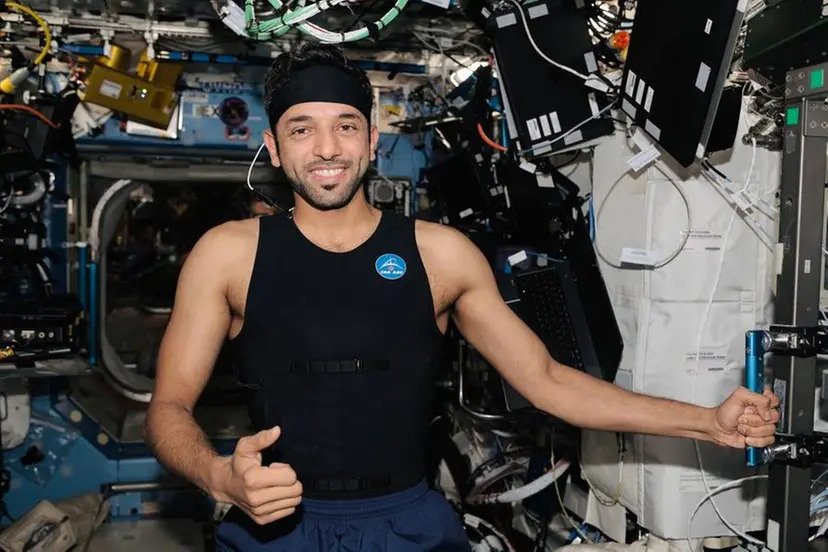Dubai, UAE – The UAE astronaut Sultan AlNeyadi on Wednesday participated in a cardiovascular study to examine cardiorespiratory impact in space.
The UAE’s Mohammed Bin Rashid Space Centre (MBRSC) shared a glimpse into astronaut Sultan AlNeyadi’s contribution to the Cardiobreath experiment on the International Space Station (ISS).
The experiment is a critical analysis of the impact of microgravity on cardiovascular and respiratory functions and was conducted in collaboration with the Canadian Space Agency (CSA), Simon Fraser University, and The University of North Dakota.
Through the experiment, astronauts aboard the ISS monitor their heart rate, blood pressure, blood oxygen level, and ECG using a bio-monitor shirt, developed for the CSA. The study aims to observe changes in how astronauts’ cardiovascular and respiratory systems control blood pressure, with the purpose of ensuring that the crew stays healthy on their way back into space.
The experiment was conducted in two phases: it was first tested via a custom-fitted Bio-monitor device and a stationary bike with a cycle that AlNeyadi trained on for 25 minutes at a specific level. The data from the same was tracked by researchers who monitored the heart rate, blood pressure, breathing rate, and activity levels on both the cycle and while he was standing still to measure balance.
In the second stage, Sultan wore the custom-fitted Bio-Monitor shirt and monitored these measurements for the same parameters while using the Cycle Ergometer and while floating in the ISS. Both the results will further be compared by the researchers on Earth to determine various countermeasures for cardiorespiratory risks in space. The research will also benefit the study and recovery of elderly patients on Earth.
“The Cardiobreath study is critical to our understanding of long-term space travel and how different activities impact the crew aboard the ISS,” Adnan AlRais, Mission Manager, UAE Astronaut Programme, said. “This partnership with CSA and the North Dakota and Simon Fraser universities has fortified our knowledge of the dynamics of cardiovascular and respiratory functions in space and how the body adapts to microgravity. We are looking forward to studying this further as it contributes to the future of safer space travel.”
The Cardiobreath study will support astronauts in investigating cardiovascular and respiratory systems and how they impact blood pressure. The study will also showcase the deconditioning that weightlessness can cause while shedding light on the comparison of data between male and female astronauts.








